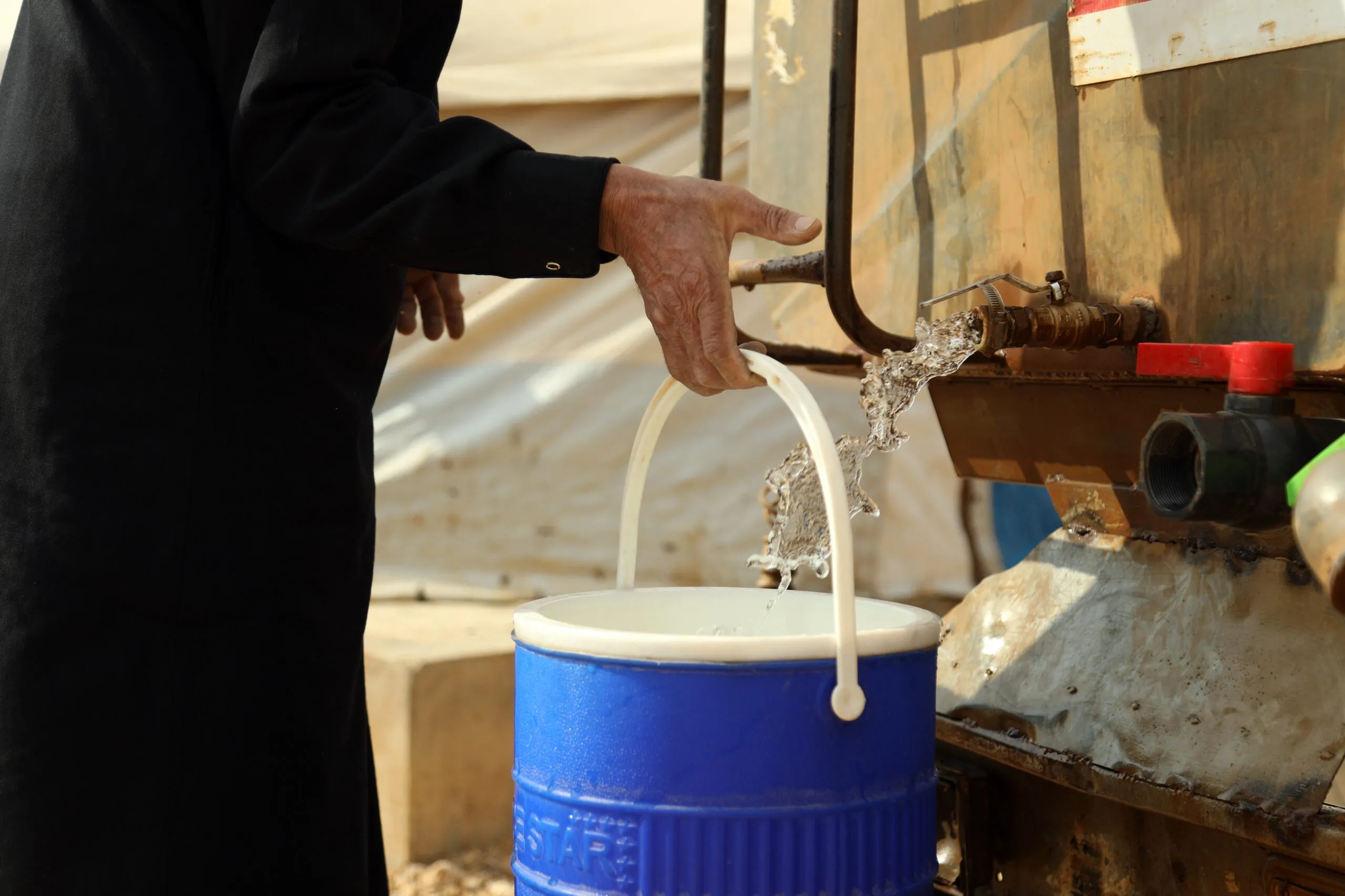(Amman, Jordan – 16 September 2022)
Millions of Syrians are at risk of contracting cholera, warns CARE International. According to the Syrian Ministry of Health, 8 people have died and 900 suspected cases have been reported in at least five of the country’s 14 provinces in the past three weeks. Cholera, an acute infectious disease, is spread through eating contaminated food and drinking water. If not treated, it can quickly prove fatal.
“We urgently need immediate action if we want to turn the tides against cholera” says Nirvana Shawky, CARE MENA Regional Director.
The outbreak has been declared in a number of areas including the Northeast, home to millions of displaced who have fled the conflict.
CARE supports the population with access to safe water and hygiene sanitation services in different parts in Syria. This includes water supply and emergency services in camp settings for newly displaced people. CARE also works together with communities to find longer-term and cost-effective solutions through rehabilitating, extending or repairing water supply systems and sanitation infrastructure and facilities.
“After over a decade of conflict, we are witnessing today a major cholera outbreak in Syria, increasing the vulnerability of the population who are already suffering from conflict, economic crisis and other complex challenges,” said Jolien Veldwijk, CARE Syria Country Director.
“In Northeast Syria alone, 4 people have already died and more than 700 were infected since the start of the outbreak early this month,” added Jolien Veldwijk, explaining that “about 70% of people in Northeast Syria rely on unsafe water sources and have very poor hygiene and sanitation conditions.The risk of rapid and wide transmission of the disease is very high and poses a serious threat to the Syrian people.”
As of this day, Deir-ez-Zor governorate is particularly affected by the outbreak as 95% of the cases in Northeast Syria are recordedthere.Displaced people are in urgent need of safe drinking water, sanitation, and hygiene supplies. In Hasakah, confirmed cases are also reported and the disease is expected to spread faster.
There are no cases reported in Northwest Syria. However, Sherine Ibrahim, CARE Turkey Country Director, sounded the alarm. “We are concerned because the area’s context is conducive to a mass spread of cholera. Camps are already overcrowded and the majority host women and children, already struggling to access clean water. Water quality treatment, through increased chlorination dosing of water supply systems and proper sewage management are our best chance of stopping the spread. Equally critical is increasing hand washing and hygiene promotion.”
Mahmoud, 27, a CARE program participant, told us: “I wish I could stop my children from going outside, because I am afraid that they will fall into open sewers and catch the disease. We are scared, because if anyone is infected with cholera, it will quickly spread and we have no means of protection,” he said.
“CARE has established immediate priority actions and guidance for partners including messaging information, education and communication material, as well as immediate response activities,” noted Sherine Ibrahim.
CARE Syria developed a three-month response plan to provide emergency and sustainable preventative Water, Sanitation and Hygiene interventions. These interventions include chlorination of critical water sources, provision of cholera response kits, disinfection of water filling points and dissemination of critical public health messages.
For more information please contact:
Anisa Husain
CARE Press Officer
Anisa.Husain@care.org

